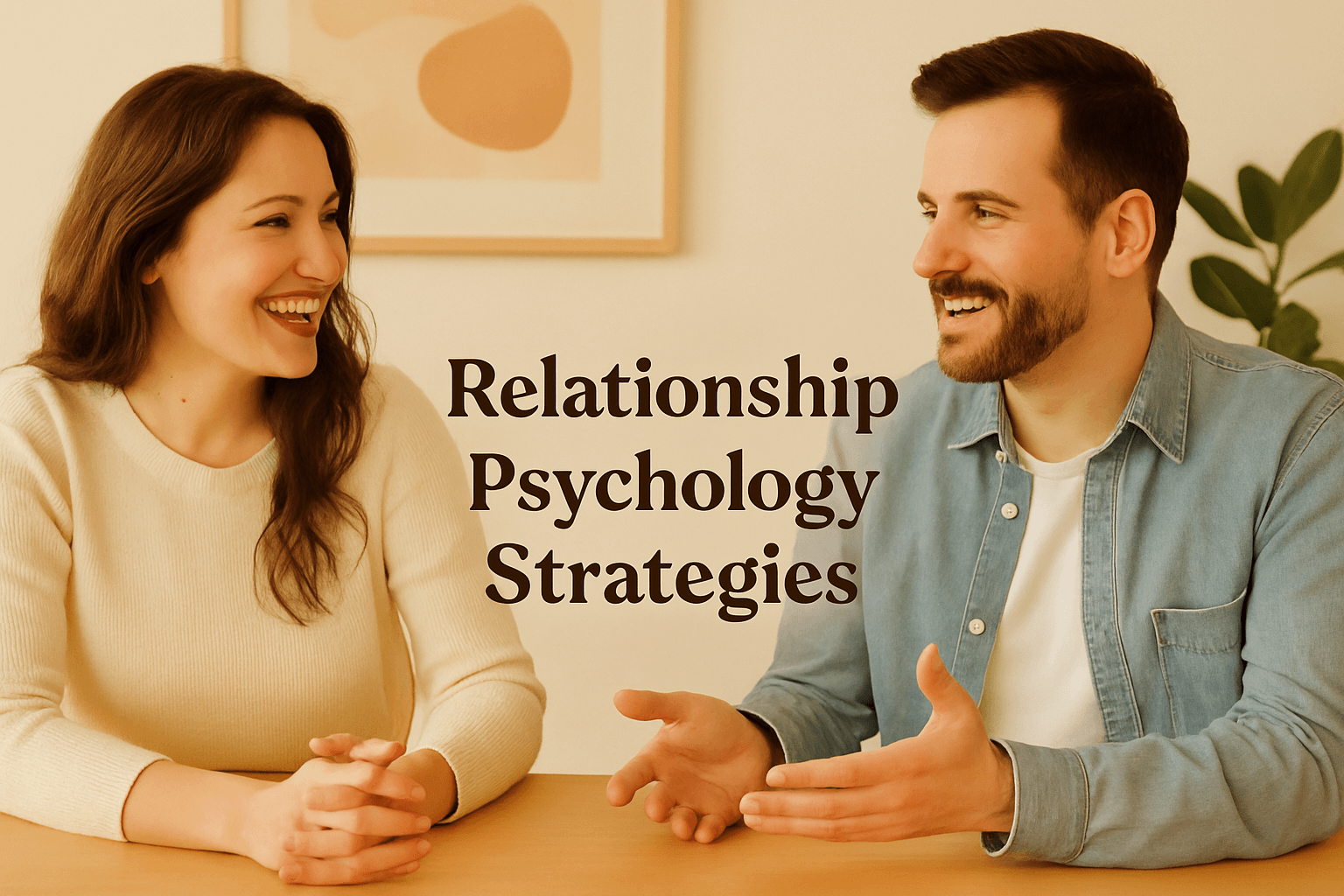Introduction
Relationship psychology strategies are the science-backed methods that help us understand why people connect, argue, or grow apart.
Have you ever wondered, “Why do we fight over the same issue again and again?” or “Why doesn’t that person understand me?”
The answer lies not in luck or personality but in psychology — the hidden operating system behind every human bond.
When we understand how the mind creates attachment, interprets emotions, and seeks safety, we can transform our relationships from reactive to intentional.
This guide will share three powerful relationship psychology strategies you can apply today to build trust, reduce conflict, and communicate with confidence.
Step 1: Know Yourself and Others
1. Attachment Styles
One of the most important relationship psychology strategies is understanding your attachment style.
Attachment theory explains why some people crave closeness while others fear it.
- Secure: Balanced, emotionally open, resilient in conflict.
- Anxious: Fears abandonment, often needs reassurance.
- Avoidant: Values independence, avoids emotional depth.
- Disorganized: Desires love but fears intimacy.
Recognizing your pattern helps you predict triggers, manage conflict, and create stability.
2. The Johari Window
Another practical relationship psychology strategy is the Johari Window — a tool for expanding self-awareness.
It divides your identity into four zones: the open, blind, hidden, and unknown self.
As you increase your openness and invite feedback, your trust with others grows.
3. Cognitive Dissonance
When your actions don’t match your values, your brain feels stress — that’s cognitive dissonance.
Recognizing this tension in yourself and others allows for empathy instead of frustration.
Understanding this process is one of the most underrated relationship psychology strategies because it helps you respond calmly to contradictions.

Step 2: Master Psychological Communication
1. I-Message Formula
Use the I-message technique to express feelings without blame:
“I feel [emotion] when [behavior] because [impact]. I would prefer [need].”
Example:
“When you arrived late, I felt disappointed because it seemed my time wasn’t valued. Next time, I’d appreciate a quick message.”
This approach — one of the most effective relationship psychology strategies — reduces defensiveness and builds empathy.
2. Active Listening
True connection begins when we listen beyond words.
Active listening involves eye contact, reflection, and emotional validation.
When someone feels heard, emotional safety grows automatically.
3. Nonverbal Communication
Over half of human communication is nonverbal.
Your tone, posture, and facial expressions matter more than your words.
Smile, nod, and show warmth — simple but powerful behaviors that align with the best relationship psychology strategies.
Step 3: Build Lasting Relationship Habits
1. Gottman’s 5:1 Rule
Healthy relationships maintain five positive interactions for every one negative.
Say thank you, share laughter, and give small compliments daily — micro-habits that compound emotional trust.
2. Reciprocity
Kindness creates a cycle of return.
When you give appreciation, people instinctively want to give it back.
That’s why reciprocity is a foundational relationship psychology strategy for lasting connection.
3. Setting Healthy Boundaries
Boundaries are not rejection; they are clarity.
“I can’t do that today” or “Let’s pause this topic” are simple, kind ways to protect emotional health.
14-Day Relationship Psychology Plan
- Days 1–3: Identify your attachment triggers.
- Days 4–6: Use one I-message per day.
- Days 7–9: Practice active listening.
- Days 10–12: Adjust tone and posture.
- Days 13–14: Set a boundary and express gratitude.
This two-week challenge helps internalize these relationship psychology strategies until they become automatic habits.
Recommended Books
- Attached – Amir Levine & Rachel Heller
- Nonviolent Communication – Marshall Rosenberg
- The Seven Principles for Making Marriage Work – John Gottman
- Emotional Intelligence 2.0 – Travis Bradberry
(Affiliate Disclosure: As an Amazon Associate, I may earn from qualifying purchases.)
Conclusion
By applying these relationship psychology strategies, you’ll begin to understand emotions — yours and others’ — with clarity and compassion.
Change doesn’t require perfection; it requires awareness, patience, and consistent small acts of kindness.
Start today.
Say thank you.
Listen fully.
Set one healthy boundary.
Every moment of mindfulness adds strength to your relationships and peace to your mind.
- Boost Your Study Efficiency by 200%: Proven Learning Strategies That Actually Work
- Level Up Your Design Skills: 7 Tutorials That Will Change Everything
- How to Use Your Pension Account Wisely at Every Life Stage
